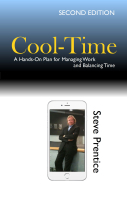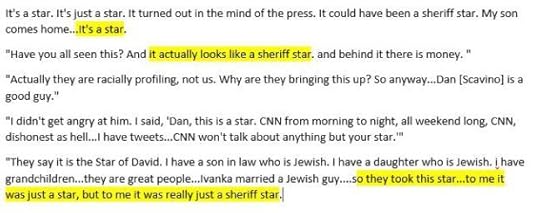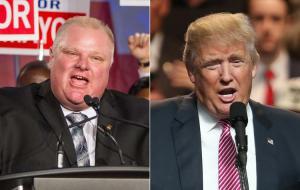Steve Prentice's Blog, page 8
September 2, 2016
What Would You Do With Four More Hours Per Day?
 The techniques in this book can win you back at least four more hours’ worth of productivity per day. Simple techniques, such as applying the 80/20 rule, choosing the right time of day, eating well, and working to your own attention span, taking short breaks guarantee that the work you are doing is the best it can be.
The techniques in this book can win you back at least four more hours’ worth of productivity per day. Simple techniques, such as applying the 80/20 rule, choosing the right time of day, eating well, and working to your own attention span, taking short breaks guarantee that the work you are doing is the best it can be.
But the question I have to ask, is once you learn how to gain four more hours of productivity per day, how would you use them? If your answer is simply to send more emails or attend more meetings then you will have gained nothing. Because it is highly likely that most of those emails and meetings exist only because there is time to spend on them. If this extra time wasn’t there, we would have to find another way. But because it is there, we fill it up with less-than-optimum tasks. This is a direct application of Parkinson’s Law, which states that “work expands to fill the time available”. In other words, doing more of the same type of stuff isn’t progress; it is ergonomic inflation.
If you could gain four more hours per day, how would you use them? More emails/meetings is just ergonomic inflation.
Think about that for a moment. Everybody wishes they were richer; they wish they had more money than they do now. So just imagine I am able to give you a raise of $500 per week. That’s $2000 per month, or $24,000 more per year. Even after taxes, that’s a lot more money available for you to do whatever you want. But most people – everyone except the most diligent and self-disciplined saver – will quickly grow used to this money.
Plans for paying down debts or saving for the future get eclipsed by an increased cost of living. Having more money means you now need more things – a nicer car, some extra clothes, more things for the house – and soon the pay raise becomes invisible, you still feel short of money and the debts are still there. It is very easy to get used to a windfall, whether it comes in the form of money or time.
The moment we open the door to the possibility of having more time available is the moment that an avalanche of additional unnecessary tasks pour in – tasks that would not have existed if the time had not been made available. That’s the danger inherent in winning back more hours per day: they get wasted.
There is a solution, of course, and it comes in the form of the 80/20 rule, in which time invested in planning out the day pays back in true productivity and easily sidesteps the dangers of Parkinson’s Law.
This is an excerpt from my book, Cool Time: A Hands-On Plan for Managing Work and Balancing Time. If you would like a copy, hop on over to my Books page. If you would like me to come and speak to your group, contact details are available on my Speaker page. Either way, you will win back time and money. It’s just practical common sense.


August 7, 2016
Donald Trump Speaks Like an Australian Frilled Lizard

Unquestionably, this has been the year of Donald Trump. Love him, hate him, fear him, it is impossible to ignore him. As a professional speaker, I find him fascinating. I watch his mannerisms, his hand gestures, his eyes, the hair of course. I listen to his words. All of them point to a style of defiance and bravado. He, the proponent of the great Mexican wall, has built one around himself – a shield against any form of rebuttal or inquiry. A shield that also magnifies the intensity of his delivery, even when true substance is lacking.

Australian Frilled Lizard – Image from Google Images. Click for link.
You see many examples of this in the animal kingdom. Frilled lizards, like the one pictured, extend the ruff around their neck to appear larger and scarier than they actually are. Puffer fish do this, and even cats do it when they arch their backs. This act of physical bluster seeks to fend off predators and competitors without having to resort to actual battle.
Please do not take this blog as a hit piece against Mr. Trump. I am trying to understand his appeal through his technique, which has obviously proven to be a success. He is one of many notable political speakers, and I wish to compare him to those from either side of the political landscape.
Those Hands
When Mr. Trump speaks, his hands speak too. Everyone who speaks publicly learns sooner or later the power of hand gestures while talking. You need them. Most people in the know use their hands carefully, as punctuation – subtle embellishments of the message, a demonstration of openness, sincerity, or conviction. Nervous or inexperienced speakers tend to use their hands too much, a problem that becomes even worse on camera. Over-gesticulation becomes a distraction to the audience, but correct hand usage guides the listener through the story: body language becomes a chaperone to the words.
My feeling is, Mr. Trump’s hand gestures convey an instruction to his audience: “Don’t interrupt me. My idea is all that counts.” He speaks with one or both hands raised to shoulder height, palms outward, often with his index fingers raised. To me, the palms outward represent the universal “stop” signal. They put up the wall that says, “you must not interrupt me.” The raised index finger highlights the topic being spoken about. They say, “This idea is the best. This is the one thing you should be paying attention to.”
Mr. Trump seldom lets those hands rest. They are in action throughout his entire verbal delivery, ready to fend off any challenges from hecklers, or worse, journalists.
Those Words
Mr. Trump’s speaking style is another wall, another defensive inflation of his physical self. He allows no spaces, no pauses, no chance for anyone else to step in. There are three essential components of his speech, in my opinion. These are refrains, flares, and hooks.
Refrains: Mr. Trump never says something once. He says it many times. Every phrase is stated three or more times, especially while he is framing his thoughts, or as a statement comes to a close. Here he is defending his use of the “Star of David” graphic on a recent anti-HRC web page. I have highlighted the refrains.

Flares are phrases that shoot out the side of a conversation as unnecessary fillers, distractions. They shift the mind’s focus away from the key message, reducing the chance for people to truly focus and then question its veracity. This is very much like the technique of distraction that magicians use to keep audiences from scrutinizing a trick too closely. Here’s the same piece with the flares highlighted:

This style of distraction with flares and repetition of the main elements is very efficient, and I do not believe it to be anything but intentional. Not only do these two techniques act as a wall, but they also help drive a message home. Anyone who sells for a living knows this: if you say something over and over again, regardless of how true or false it is, most people will start to believe it.
Hooks: Then there are the hooks. The most brilliant of all. Generally two words long. Shocking and memorable. Crooked Hillary. Little Marco. Lyin’ Ted. Failing New York Times. These are powerful because they are easy to remember. Compare this to President Obama’s signature phrase, “Let me be clear,” which, to a vast majority of listeners, sounds like “I want your attention for a protracted period because I’m about to say something that’s good for you.” Few people have the patience for that.
Other Speakers
Mr. Trump’s wall of words reflects his brash, in-your-face style, presumably a job requirement in the cutthroat world of property development. How does it compare to other well-known political speakers?
Ronald Reagan was known as the “Great Communicator.” He employed a folksy, smiling style, even at his most serious. As a professional actor, he knew the value of cadence, the power of a well-timed pause, as well as the memorable hook. Remember, “Mr. Gorbachev, tear down this wall.” A positively world-changing sentence.
Bill Clinton has always been a master storyteller. He, too, conveys a down-home charm that beautifully reflects his Arkansas roots. His speech supporting Hillary at the 2016 Democratic convention sounded like he was speaking to a customer over the counter at a rural general store.
The Obamas are both skilled at speaking. President Obama delivers his words like smooth jazz – calm, sophisticated, authoritative, with plenty of pauses and space for the audience to revel in a piece of art. The first lady exudes passion, optimism, and commitment to her ideals. Her eyes reveal a willingness to share, a positive energy.
Ted Cruz uses the soaring intonations of the pulpit, reflecting his father’s preaching style, evoking emotion and credibility by verging on song and powerful repetition. Credit for this style is due of course to the Gospel preachers of the South, mostly African-American, and most expertly employed by Martin Luther King, Junior.
Every public figure has to choose a style of voice. Some, unfortunately, do not. I do not find anything memorable about Hillary Clinton, and that may be her Achilles heel. Nor is Marco Rubio terribly impressive. And Jeb Bush, as nice a guy as he may be, could never muster the verbal energy to justify that exclamation point.

The start of a whole new approach to political messaging. Ford and Trump. Photo from NY Daily News.
This is not an age where cerebral chat is valued. It is an age of sound bites and public fascination with the next new thing, the more shocking, the better. In Canada, Rob Ford was a cultural icon. Had he survived his battle with cancer, he would still be on the world stage, not because of the depth of his political intellect, but despite it. As one journalist one said to me, “Ford only has to blow his nose, and it will be on the front pages.
Mr. Trump is a speaker for our times. He goes on the offensive, blocking scrutiny and bulldozing over issues that would have sunk other politicians long ago. His unapologetic ignoring of those unreleased tax returns is a prime example. Anger is the current tone of the nation. You see it in the relentless trolling and shaming of people online. You see it in the normalization of horrific attacks on innocent people, whether initiated by terrorists, citizens or the police.
Collectively we have lost the capacity to question ourselves, and have consciously dispensed with any obligation to take blame. It is easier and quicker to apply that blame elsewhere. Thus, the frilled lizard that is Mr. Trump. Attack with watever you have, even if you do not have much. It will scare your opponents away, which, as we are all observing can be an extremely effective survival tactic. Extremely effective. It’s so effective I can’t – I have people – so many people who say it’s the greatest… listen – it works, OK?
##


February 7, 2016
When did the Debate become “Dancing with the Stars”?
February 7, 2016
Like many other voters, I watch political debates to learn what each candidate has in mind regarding improving the various ills of the country. Yet every time they stand on stage to debate, dressed in their identical dark suits, they seem to embrace their moment in the spotlight as an opportunity for self-directed oratory, regardless of the questions asked.
So why won’t politicians answer the moderators’ questions?

Ted Cruz telling a sad story about his half-sister, before obliquely blaming the Mexicans. Photo: CNN
All candidates — from both the left and the right — are guilty of this. They are asked a question such as “What is your stance on same-sex marriage?” and it turns into a character assassination of their opponent. A question about a specific issue such as deaths from heroin overdoses or caring for veterans comes back as a justification for building a wall to keep the Mexicans out, or for going back to war, or for blaming the current administration. There is no connection, and no attempt at connection, and this smacks of arrogance in the extreme. The candidates simply steer each opportunity to speak towards a prepared stump speech. The problem is we already know what they stand for. We want to know exactly how they will achieve their goals and fulfill their promises.
The mediators themselves seem powerless. They ring their bells, and they attempt to interrupt, but the candidates talk on, abusing the rules of engagement, and blindly charging ahead. Almost always, for the moderators, some instinctive sense of politeness invariably forces them back into meek silence, bullied, once again by a politician’s ego.
Although there are many voters whose decisions are made solely on the strength of a candidate’s personality, there are many more who wish to truly understand what that candidate is going to do to fix a particular problem. We don’t want scripted, flag-waving jingoism. We want the nuts and bolts of how a proposed solution will work, step-by-step, and how it is better than the competitors’ own plans. Just saying “I have a way, way better idea,” is a bluff at best, and a lie at worst. It says absolutely nothing.
Perhaps the sponsors of the debates are the nervous ones. Perhaps they do not wish to see a conflict between moderators and speakers, but instead a nice smooth show-and-tell. Not so much a debate, but instead a Washington version of Dancing With the Stars, with each competitor twirling to their own tune, but no contact and no depth: sequins over substance.
I would like to see a debate where the moderators retain complete control. If a candidate does not stop speaking 10 seconds after the bell is rung, his/her microphone is turned off for five minutes. Same thing if a candidate does not directly answer the question asked, but instead pursues their own personal agenda.
Perhaps also, to further the spirit of democracy and responsible (small) government, the frequency by which candidates are allowed to speak — a highly prized commodity when there are more than three individuals on stage — should be based on the clarity and accuracy of their answers. This could be a scored system. The more times the candidate is scolded about drifting off-topic, the lower their score becomes, and the lower they rank on the speaking hierarchy.
The debates in their current form simply show politicians demonstrating their true colors: blithely ignoring the requests of their public and pursuing their own agendas without fear of confrontation. Candidates often say they seek to win votes by listening to the voters. Maybe they can demonstrate this in action by first listening to the moderators, and then responding as instructed. They are, after all, supposed to be public servants.
##


January 5, 2016
Why Must Digital Audio Book Titles Expire?
Listening to audiobooks is a pastime enjoyed by many. It has never been more practical, given the range of wireless devices that an individual can now use. We are no longer tied to the CD drive in home stereos and cars. They re-open the universe of the written word to people of all ages, most of whom are too time constrained to invest in an actual book, but who can easily delve into a chapter or two while commuting or exercising.
One would think this renaissance, in which authors’ works are converted to wireless, professionally narrated pieces of immediately accessible art, would be embraced by book publishers as an opportunity to balance the effects that digital media has had on traditional bookstores.
Yet, for public access, draconian and seemingly archaic licensing laws continue to exist.
Case in point: I recently downloaded an audiobook from my local library, which subscribes to a national downloading service. The book arrived inside my phone’s app within seconds, and soon thereafter I was enjoying the title, listening to it through my car’s Bluetooth connection as I drove. Ah, the wonders of the wireless world.
Books become Pumpkins
Unfortunately, the publishers who made this title available to me through the library, allowed me only one week to listen to it before the licence expired. So exactly one week later, while I was still barely halfway through the book, the file had turned back into a literary pumpkin, on the outside of which was a sternly worded message reminding me to delete the now unplayable file from my phone’s memory.
My question is “why?” Why must there be such a short expiry period on a digital property? Why should there be an expiry date at all? I understand, if you borrow a book from a library, then no-one else can access that book until you return it. But this is the digital age, people! Digital files can be replicated infinitely with no adverse effect on the original.
On hold? For What?
Oh yes. And then there is the HOLD. There was another book that I was interested in downloading, but it was on hold. On hold? For what? There’s nothing unique to hold!
I understand that publishing companies are in the business of licencing books, ostensibly to guarantee revenue for their authors. I know this first hand, being a published author myself. I know also, that, as with all artists, we sit at the bottom of a very large inverted pyramid, and tend to get paid after all the middlemen have taken their share. Hmmm. Could that have something to do with it?
The point is, libraries, booksellers and book publishing companies are looking to protect their revenue streams amid an ocean of digitally accessible everything. But does withholding a title actually generate the type of scarcity that will guarantee a queue of patient, obedient title-borrowers? Especially when some enterprising individual might see fit to upload the entire audio track to YouTube so that everyone can listen to it without delay?
Or is their protectionism a holdover from a pre-digital age, in which supply and demand could actually be controlled by publishers?
Monetize the digital marketplace
My feeling, as both an author and as an avid listener of audiobooks, is that there is more to be gained from changing the model: make library titles infinitely available. Guarantee their quality. Make your free product better than the knock offs, and capitalize on spin-off activities, such as directing happy listeners to purchase related titles through sites like iTunes. Heck, I would be happy even to put up with a sponsorship, such as “This audiobook is being brought to you by ABC company.” Sponsorships could easily be rotated – such is the nature of digital media. It is much easier to modify than, say, typeset ink.
Ultimately I feel the publishing industry has much more to gain by adopting a more modern approach to monetizing the omni-channel marketplace than the current dusty old licencing program. Maybe they have started to do so, but it certainly does not seem to be working at the library. If there was ever a perfect “try-before-you-buy” environment, the national library system certainly would fit the bill, and would continue to bolster the existence of publishers and libraries alike.


December 30, 2015
Who Is Your Emergency Contact Point?
Emergencies such as natural disasters, and the human-made kind, happen all the time, but usually somewhere else. Many of us grow a little complacent when it comes to preparedness, since to even think of a bad thing happening touches our superstitious sides and seems to invite the event into our lives. But floods, earthquakes, power failures and civil unrest will continue, and will likely escalate. There are many things to consider in terms of surviving such a calamity, but two questions that absolutely have to be asked is, “who is my emergency contact person?” and “how will I reach this person?”
We have grown very comfortable with carrying a smartphone with us everywhere, but what if it got lost or broken? Or what if the cell system broke down? How would you reach someone then? I would have a hard time remembering anyone’s actual phone number, since I so seldom actually enter numbers anymore. Everything is pre-set and one-touch. Most people I ask feel the same.
That’s why it is so important to identify and Emergency Contact Point (ECP). Assign a member of your family, or a trusted neighbor to be your local ECP, and choose a second person – someone who lives at least 100 miles away, to be your long-distance ECP. Both of these people should be someone who is most likely to be available, and will be able to relay messages in case other channels fail.
In the event of a power or cell network blackout, you may still be able to make a call from a payphone or a land-line. In cases of emergency – any situation in which direct connection with family members is no longer possible – everyone should know to call in to the ECP. This person can take messages from each family member as they call in, and then relay them back out. It’s a central communications point.
Consider also having a social media place or code, for example a Twitter account or FaceBook page that could be used as a rallying point for messages, assuming you can get on to the Internet.
The key point here is to set this up in advance. Choose your ECPs and your social media strategy, and inform everyone in your family how to use them. Yes, it seems dorky and tedious, but it can save many hours or days of worry and wasted effort should things fail in a big way.


December 17, 2015
The Future of Meetings
This blog post, written for HP’s Business Value Exchange , entitled The Face To Face Conundrum is available for review at CloudTweaks.com. This post proposes that meetings have to change and become more engaging in order to remain relevant and productive. Click here to read.


December 13, 2015
Uber’s Surge Pricing Model And Free Market Economics
This blog post, written for KPMG , entitled, The Surge Pricing Model And Free Market Economics is available for review at CloudTweaks.com. This post proposes that the dynamic nature of pricing under the Uber model might work in surprising ways for B2B purchasers who do not update their procurement processes. Click here to read.


December 11, 2015
The Need for Experienced Cloud Security Professionals
My blog post for cloud security firm (ISC)2 , entitled, Competing Cloud Security Demands Call For Credentialed Professionals is available for review at CloudTweaks.com. Based on interviews with security experts, the post discusses why it is critical that cloud security experts come with years of experience to handle the challenges of security online. Click here to read.



December 7, 2015
The Blended Mindset
This blog post, written for HP’s Business Value Exchange , entitled, The Blended Mindset is available for review at CloudTweaks.com. This post proposes that people need to maximize their human skills such as creativity and relationship to match their technological abilities. Click here to read.


November 24, 2015
The True Dangers Of Allowing Social Media In The Workplace
This blog post, written for KPMG , entitled, The True Dangers Of Allowing Social Media In The Workplace is available for review at CloudTweaks.com. This post proposes that greater productivity and engagement can be achieved by allowing employees short mental breaks, which includes accessing social media on company time. Click here to read.





